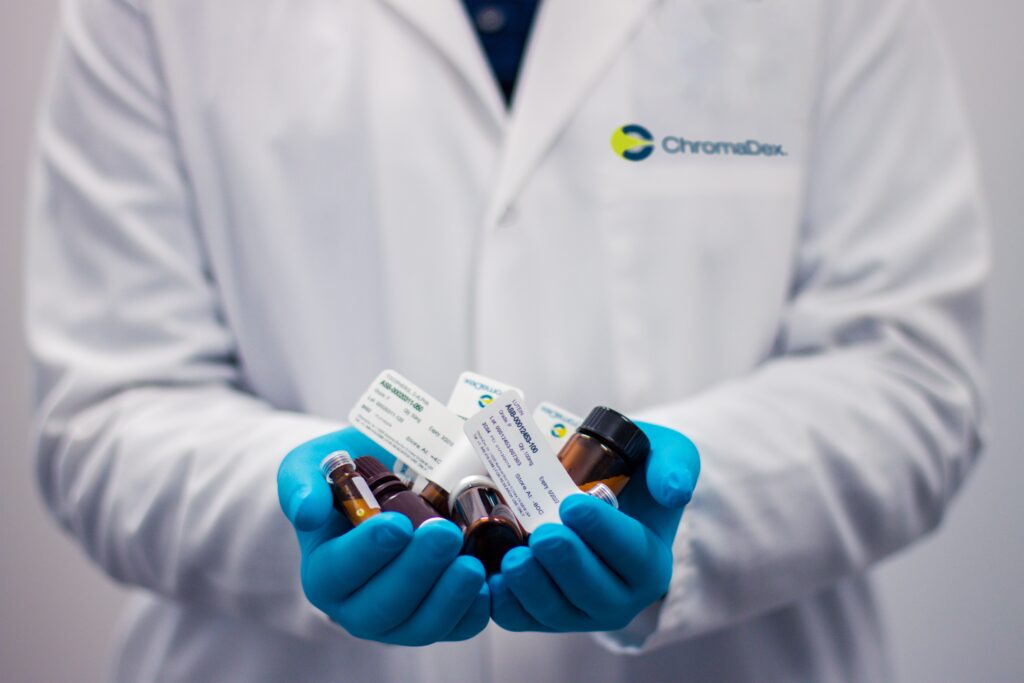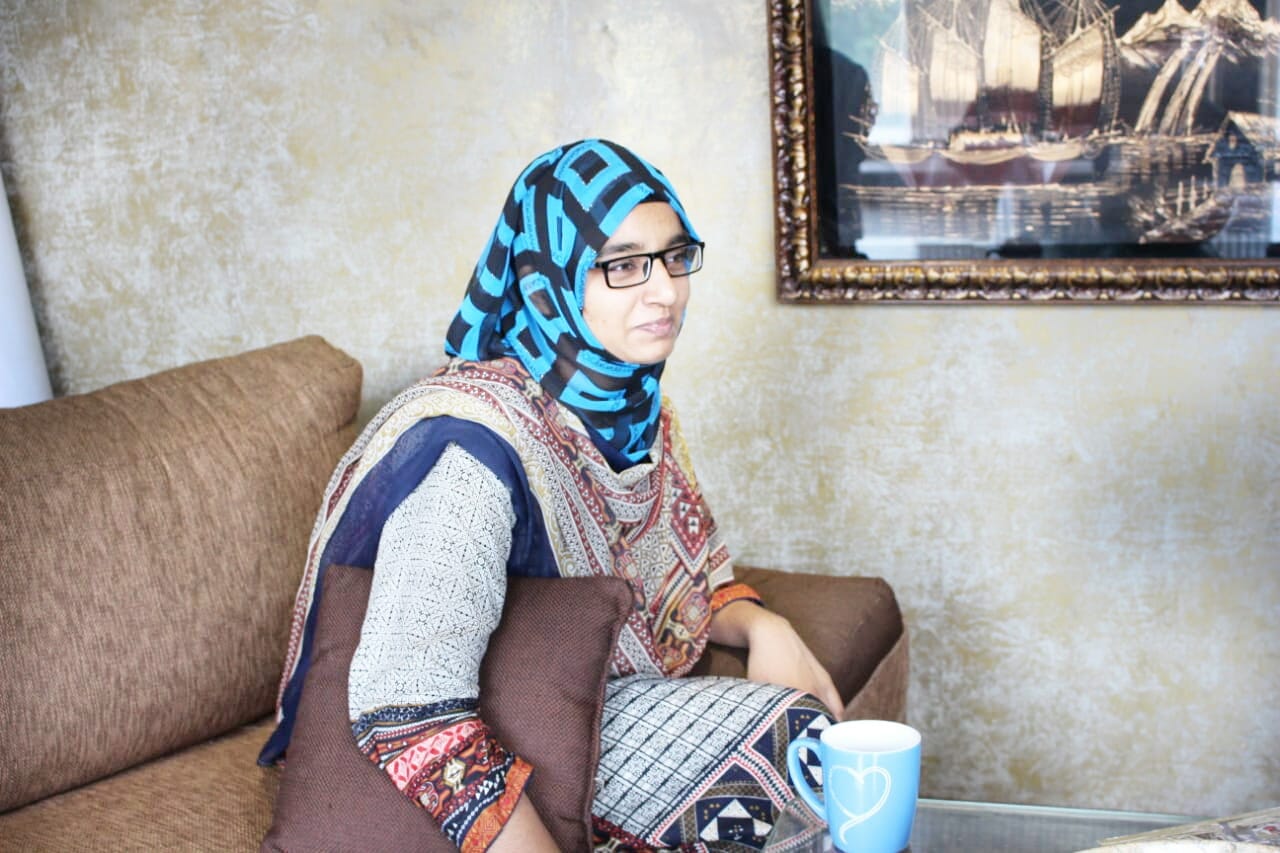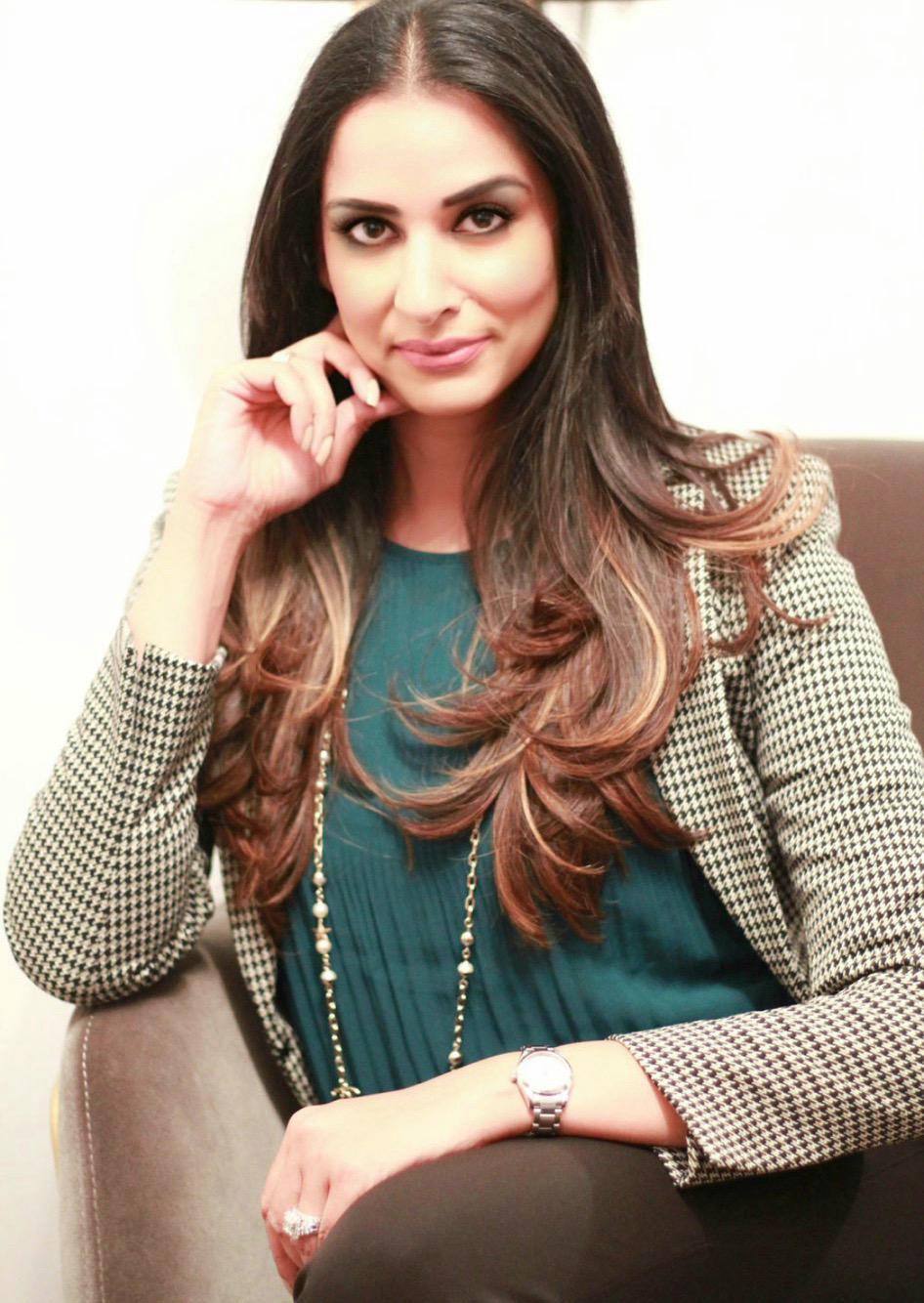Nadia Bukhari is a British academic pharmacist, and the youngest female fellow of the Royal Pharmaceutical Society: a privilege granted to those who achieve excellence and distinction in their pharmacy career. Further, she was the first Muslim female and the first woman of Pakistani origin to be elected onto the National Pharmacy Board for England. She has authored various titles with the Pharmaceutical Press and mentors students globally.
This interview was originally conducted by an Editor of Scientia- Khola Abid, and lately drafted out by both Khola and Mehwish. We sat down on Zoom with Nadia Bukhari to discuss the role and importance of Pharmacists, and what are the key ingredients that distinguish her from the rest of the crowd.
Tell us something about yourself ?
Nadia Bukhari: I am a very proud pharmacist and have quite a portfolio career.
I am an academic pharmacist at the University College London, UK, global lead for gender equity for workforce development at the International Pharmaceutical Federation, and I am the Chief Pharmacist for Pakistan’s leading Telemedicine company DoctHERs. In addition, I am an executive committee member for the Indus Health Network UK, and a trustee for a Pakistan based strategic organization Pakistan Alliance for Girls Education. ; always wearing lots of different hats, but this is what keeps my career journey interesting.
Can you tell us what has been the biggest influence on your career journey?
Nadia Bukhari: When we think of someone or something that has influenced our career journey, we often think of positive influences. However, for me, not only have the positive influences driven my success, but the negative ones also. So, for my positive influence, I would like to thank Catherine Duggan for being my mentor and CEO of the International Pharmaceutical Federation. She guided me through every major step that I have taken in my career; the one piece of advice that I give to all is that having a good mentor is integral for shaping your career to the road of success.
On the flip side, there are many negative encounters that occurred in my life and career path. Those negative experiences really made me focus on myself and pushed me to develop skills of inward reflection which in turn has given me a lot of determination and motivation to focus on myself and my career. So, I also like to thank the negative influencers in my life as well because they inadvertently, also drove me towards success.
Can you give us an example where you influenced and created an impact in the pharmacy profession?
Yes, I am honored to mentor quite a number of young pharmacists.
During the Corona pandemic, Pharmacists have been feeling unmotivated and un-recognized despite being on the frontlines. This was highlighted to me through various pharmacist platforms in Pakistan; I then decided to take this to the media and to use their platform to highlight the important work that Pharmacists are doing during this whole pandemic to the public.
I was interviewed on PTV News24, ARY and Radio Pakistan
I spoke about the role and importance of pharmacists, and highlighted the role that pharmacists are playing during this pandemic. This was highly appreciated by the pharmacy community in Pakistan; I received many lovely messages of appreciation. My message to our pharmacists in Pakistan is that I will try my very best to support pharmacists and our profession by ensuring their voices are heard and listened to.
You are the first Muslim female to be elected on the Board for Royal Pharmaceutical Society of Great Britain and you are also the fellow. Can you tell us about this amazing achievement?
Nadia Bukhari: A lot of things in my life have been unplanned; if you took me 5 years back, I never thought I would be where I am today. So, a lot of things happened organically; being at the right place at the right time. Being a fellow for Royal Pharmaceutical Society (RPS) is an honor that RPS bestowed to the members who give exceptional services to the pharmacy profession, and there are many things that I have done during my career which culminated to the fellowship, e.g., promoting pharmacists on the global platform, quite a bit of media work, and again around the globe advocating the pharmacy profession.
I am so passionate about being a pharmacist as I always wanted to be one from a young age. Usually, people think that pharmacists are medical school drop-outs; they didn’t get a chance at medical school, that’s why they are studying pharmacy. But, I always wanted to be a pharmacist, and I feel so proud to represent my profession and the passion for the profession always shines through.
Earlier in my career, I practiced as a community and hospital pharmacist. Now, being in academia, I love every single interaction that I have with my students. and am pleased to be a role model for young aspiring pharmacists.

You also have a philanthropic side and you are a strong advocate of women education. Why do you spend the biggest portion of your time on women’s education and community service work? What does it give you in return?
Nadia Bukhari: I am sure we all have heard about UN sustainable development goals. These 17 goals help any nation develop a sustainable future for all. Two of them that spring to mind: access to good quality education and access to quality health care.
“In my opinion, health care and quality education are the two things that lead to the prosperity and sustainability of any nation.”- Nadia
Pakistan is my country of heritage, though I was born and raised in London, I always wanted to give back. Unfortunately, Pakistan has the second-highest number of out of school children in the world. I was approached to join as an ambassador for Pakistan Alliance for Girls Education. I came on board as I really believed in the work PAGE was doing in promoting gender equity and increasing access to education for girls all across Pakistan. I visited one of the schools, and that visit changed the whole perspective of philanthropy for me. Whilst there, I interacted with the girls and saw how grateful and motivated they were about receiving an education- that just made my drive and determination to come on board as a trustee, deeper. We have 144 schools all across Pakistan which we have opened mostly by fundraising here in the UK.
My second philanthropic project is my work with the Indus Hospital: the only hospital in Pakistan that has no cash counter. I visited the hospital and have also done some training sessions with the pharmacists. I am now an executive committee member for the Indus Health Network in the UK advising on our advocacy and fundraising for the hospital.
My advice to anyone who wants to engage with any philanthropic initiatives:
“One should visit and see the work that has been done first hand, engage with the people that are affected because that really stays with you forever, and it gives you a lot more motivation to fight for that cause.“
During this whole Corona Pandemic, how are the Pharmacists playing their role?
Nadia Bukhari: Pharmacists are experts in medicine. Whenever there is any involvement with medicines, you must always have a pharmacist involved; that’s the bottom line.
With COVID-19, every country is pretty much affected. During the lockdown, the public has restricted access to shops except for grocery stores and pharmacies. Now, pharmacy is considered an essential service, and who is delivering these services? Of course, a Pharmacist. Pharmacists always have been, not just in the corona pandemic, at the front line of health care. One doesn’t need an appointment with a pharmacist and they are easily accessible.
Right now, during this pandemic, doctors are completely stretched and the already strained health systems are breaking. Patients and the public are turning towards pharmacists Apart from medication safety and safe dispensing, pharmacists are advising and supporting patients when it comes to the coronavirus.
During COVID-19, pharmacists worked at the frontline to save lives despite it, WHO couldn’t consider them among health heroes. I wonder if we could discuss the most probable reason?
Nadia Bukhari: This is a very contentious issue, unfortunately, and the problem is we are absolutely on the front lines, but not getting the recognition we deserve, and this is what leads to the de-motivation of our profession. For this very reason, I took to the media to advocate for our pharmacists in Pakistan.
Here in the UK, our health secretary gave gratitude to pharmacists, and this was a great boost for the profession. In Pakistan again Dr. Zafar Mirza- the state Minister for health-also mentioned pharmacists through social media which was highly appreciated by the profession; recognition goes a long way.
The hierarchy within the health system is still there but more so in Pakistan where doctors sit on the top of the pyramid and all other health care professionals come below, and even now in 2020, we haven’t been able to change that mindset in Pakistan. In countries like the UK, we are moving towards more of a seamless integrated care approach where the patient is at the center of everything you do-but when you move towards the lower-middle-income countries you still don’t have that integrated approach.
So, there is still a lot of work to be done and my advice really is that:
Every single pharmacist, no matter where they are in the world, needs to be ambassadors of the profession and make some noise and advocate about being experts of medicines and of the value, we bring to the healthcare team; we need to be the change they want to see.
Use your contacts, your network to start advocating and campaigning on what pharmacists are capable of as we are an integral part of the healthcare team.

Why did you choose Pharmacy Practice for your Post-grad years? There are loads of other pharmaceutical Sciences as well. How did it become the point of the center?
Nadia Bukhari: I have always been in the pharmacy practice domain. I worked in a community pharmacy and hospital pharmacy. Those years in practice really shaped my career. I was working in a very busy community pharmacy for over a year. That was my first job as a newly qualified pharmacist. It was a very busy pharmacy where I learned a lot from that first job; I met such a broad range of patients. It was a very high paced pharmacy that I worked in, and then I moved on to a hospital as a clinical pharmacist in surgery and musculoskeletal as a ward-based pharmacist going on ward rounds with the clinical teams. So, I worked a lot on my clinical skills when I was working there for three years before I came into academia.
The whole purpose of coming into academia was to bring my practice experiences to the students.
What was the basic motivation behind building a foundation for women in Pharmacy? I am pointing towards National Alliance for Women in Pharmacy?
Nadia Bukhari: 70% of the health force is of women but we don’t see those kinds of representation in leadership positions.
I have been going to Pakistan for about three years now in the work capacity where I am engaging with pharmacy professionals. Whenever I have gone there, I have been received very nicely and very hospitably as well. But, I have only seen the men and the incident that really sparked the question in my head was that photo, I had two years ago, where we had all the predominant pharmacy leaders on the stage and I was also invited on the stage for that picture. I posed the question, where are your women? The numbers that we see as I have just given numbers for the global work health force, that numbers can be translated into the pharmacy workforce as well and in Pakistan, we actually see that anecdotally 80% of the workforce are women. I spoke to Pakistan’s Pharmacist Association- who were very forthcoming and I want to thank them as they have been very supportive in the whole process of launching the National Alliance for Women in Pharmacy.
We need something for female pharmacists in Pakistan to help mentor them, support them, and give them some sort of leadership direction so that they also become leaders. Hence, this notion became the heart for the development of the National Alliance for Women in Pharmacy.
What would be your advice for emerging pharmacy students and for young researchers?
Nadia Bukhari: There are lots of things that I can say, but I think the biggest take-home message is:
“’ Never give up, set yourself goals and try to reach those goals. Celebrate the small and big wins, because when lots of small wins come together that contributes to the big win. Be proud of yourself.’
‘Take a step back and celebrate your wins. You are so busy in just moving on to the next goal that you forget to say:’
‘You know, I actually did a really good job there. Well done!’
‘Give yourself a pat on the back. So never give up, appreciate yourself. Also, have a good work-life balance that’s something we tend to forget and get yourself a mentor that is truly important.’”
Also Read: A Psychiatrist’ consent on the Mental Toll of Lockdown and Quarantine

Khola Abid is in her fourth year of Pharm at UVAS, Lahore. She is interested in history and development of Science.

